Noise in operating rooms has been known to cause issues relating to performance, concentration, stress, and overall wellbeing of healthcare workers. Effective communication is essential in operating room, however acoustics and speech clarity are impacted by a number of elements including the layout and design of an operating room and the materials in which it is made from.
Modern methods of construction are becoming an increasingly popular alternative to brick-and-mortar infrastructure thanks to their sustainable qualities and the shorter build time required. Assisting in combatting hospital capacity issues, modular buildings are manufactured off-site and later assembled on site, helping to minimise construction waste and noise pollution amongst other things. It has long been assumed that the introduction of modular operating rooms will have a detrimental effect on acoustics in operating rooms, however bespoke solutions can ensure that appropriate technology is in place when required.
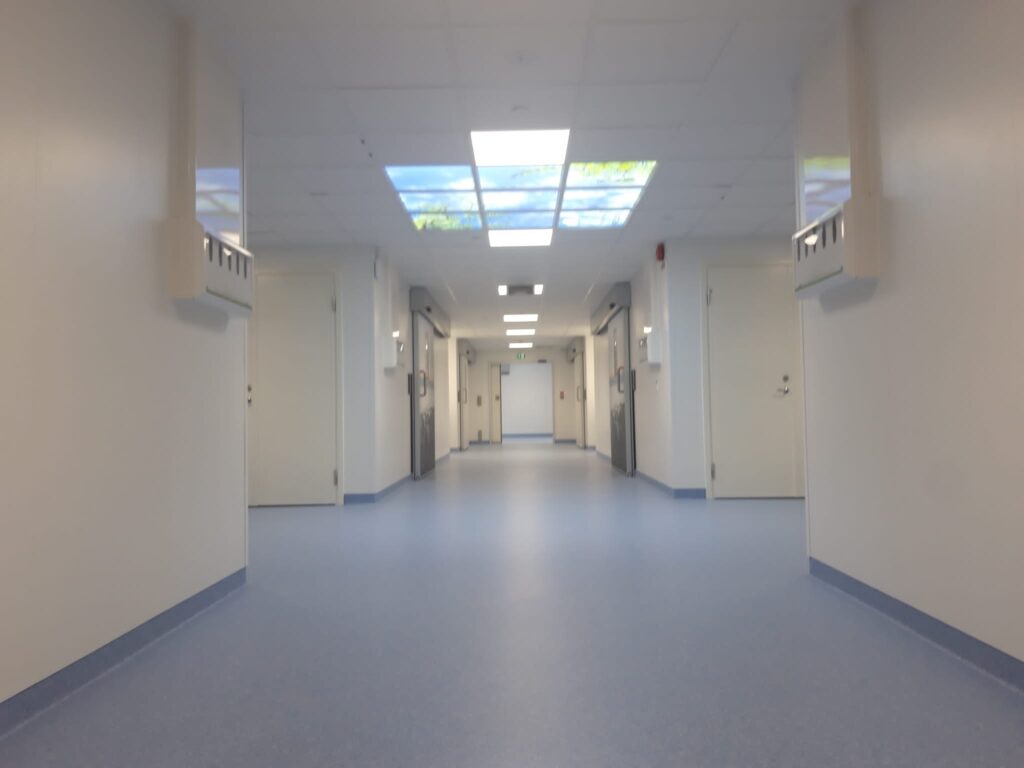 Q-bital in Malmö
Leading healthcare infrastructure provider, Q-bital Healthcare Solutions, part of the Q-bital group, designed and installed a modular operating room solution in
Malmö, Sweden
to help create additional orthopaedic capacity. The flexible nature of modular infrastructure means that they are made up of reusable materials, such as wood and steel, and the surfaces used typically do not contribute to sound absorption and minimising reverberations. With this in mind, the Q-bital facility, featuring two
modular operating rooms
and a preparation room, was designed with sound absorption as a priority. Corian, made from acrylic polymer and alumina trihydrate and commonly used as a countertop surface, was used in the wall modules and alongside a ceiling solution made from mineral wool to absorb sound reverberations and minimise the unwanted noise within the room.
Q-bital in Malmö
Leading healthcare infrastructure provider, Q-bital Healthcare Solutions, part of the Q-bital group, designed and installed a modular operating room solution in
Malmö, Sweden
to help create additional orthopaedic capacity. The flexible nature of modular infrastructure means that they are made up of reusable materials, such as wood and steel, and the surfaces used typically do not contribute to sound absorption and minimising reverberations. With this in mind, the Q-bital facility, featuring two
modular operating rooms
and a preparation room, was designed with sound absorption as a priority. Corian, made from acrylic polymer and alumina trihydrate and commonly used as a countertop surface, was used in the wall modules and alongside a ceiling solution made from mineral wool to absorb sound reverberations and minimise the unwanted noise within the room.
Q-bital designed the solution bespoke to the needs of the Skåne University Hospital and a number of considerations were made when determining the materials used. For instance, orthopaedics is highly sensitive to microbial contaminants, meaning that the 40mm suspended ceiling from Ecophon was chosen as it can be disinfected daily and it conforms within the ISO 14664-1 [1] certification that aims to achieve a goal of less than five colony forming units in the operating rooms. The suspended ceiling covered around 85% of the roof area, allowing for space for ventilation, pendulums and lights and maximising the sound absorption within the modular operating room.
Furthermore, using an
Opragon
system for ventilation, energy consumption was reduced through the temperature-controlled air flow system (TcAF). The ultra-clean air system minimised the risk of infection during surgery and was validated according to the latest Swedish regulations. This, alongside the cost savings experienced, heightened the sustainability of the modular operating roomwithout compromising patient safety.
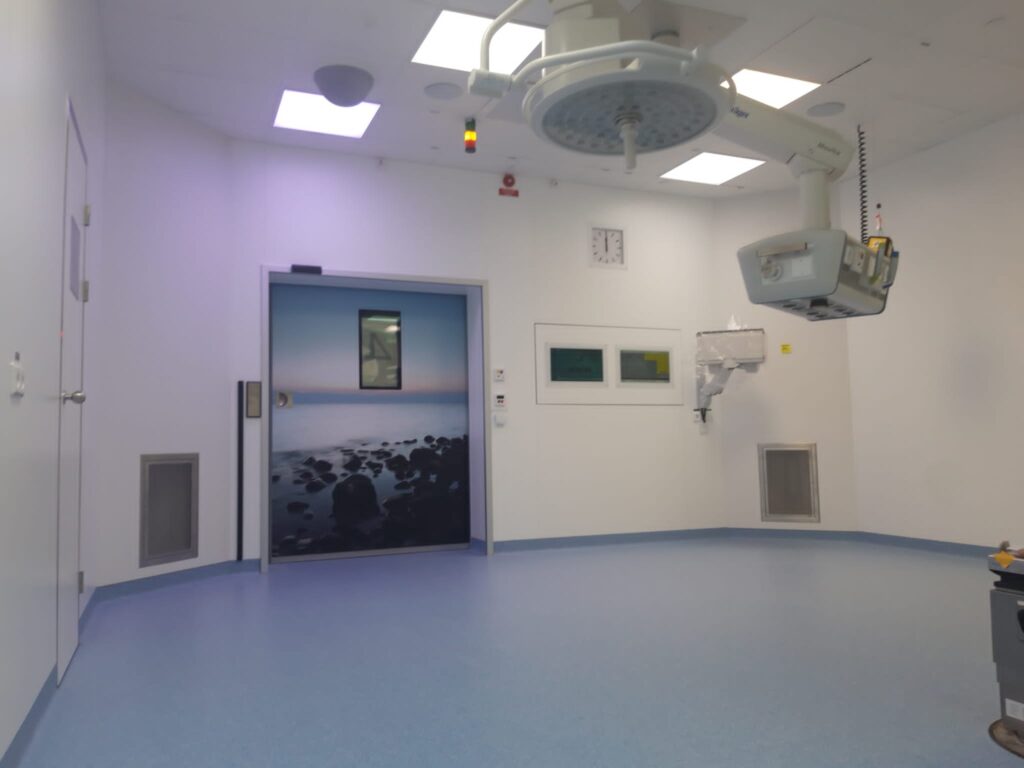 Results
In Sweden the maximum reverberation time in an operating room is must be between 0.6 and 0.8 seconds at 125 Hz. The Q-bital facility in Malmö sat at 0.5 seconds at 125 Hz, demonstrating that modular operating rooms meet the necessary regulations.
Results
In Sweden the maximum reverberation time in an operating room is must be between 0.6 and 0.8 seconds at 125 Hz. The Q-bital facility in Malmö sat at 0.5 seconds at 125 Hz, demonstrating that modular operating rooms meet the necessary regulations.
Indeed, a study conducted by Ecophon went on to further look at speech clarity (C50) within the room. The study demonstrated that the C50 value reached 7 dB at 125 Hz, a value strongly related to good speech intelligibility. Additionally, the C50 value remained above 6 dB at the frequency range of 500 Hz, the frequency at which most consonants are projected, therefore making it key to speech clarity.
The 342m2 facility in Malmö was installed in just 10 months from initial concept and will be in place to support high risk orthopaedic procedures 24 hours a day for a period of 7 to 10 years.
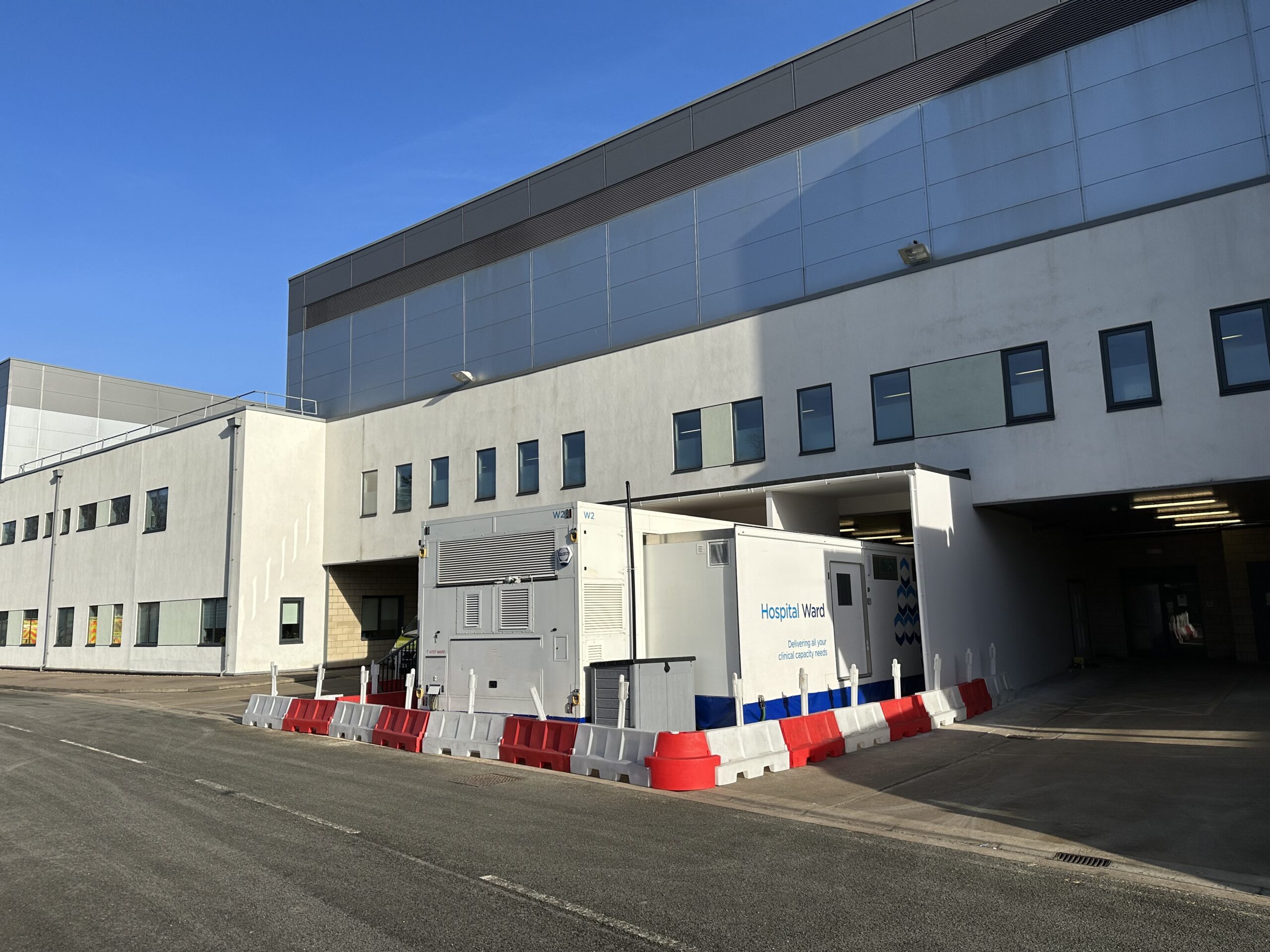
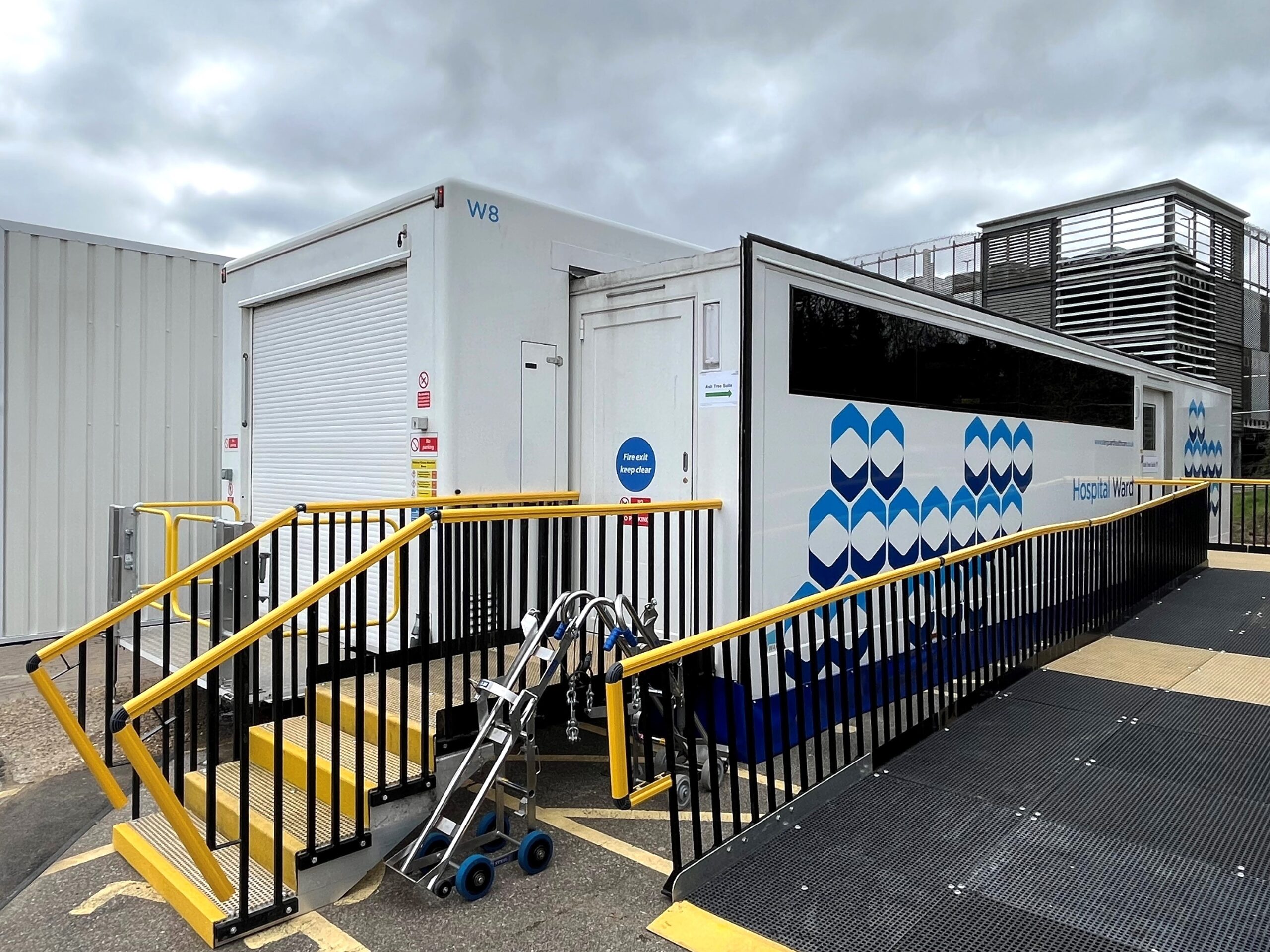
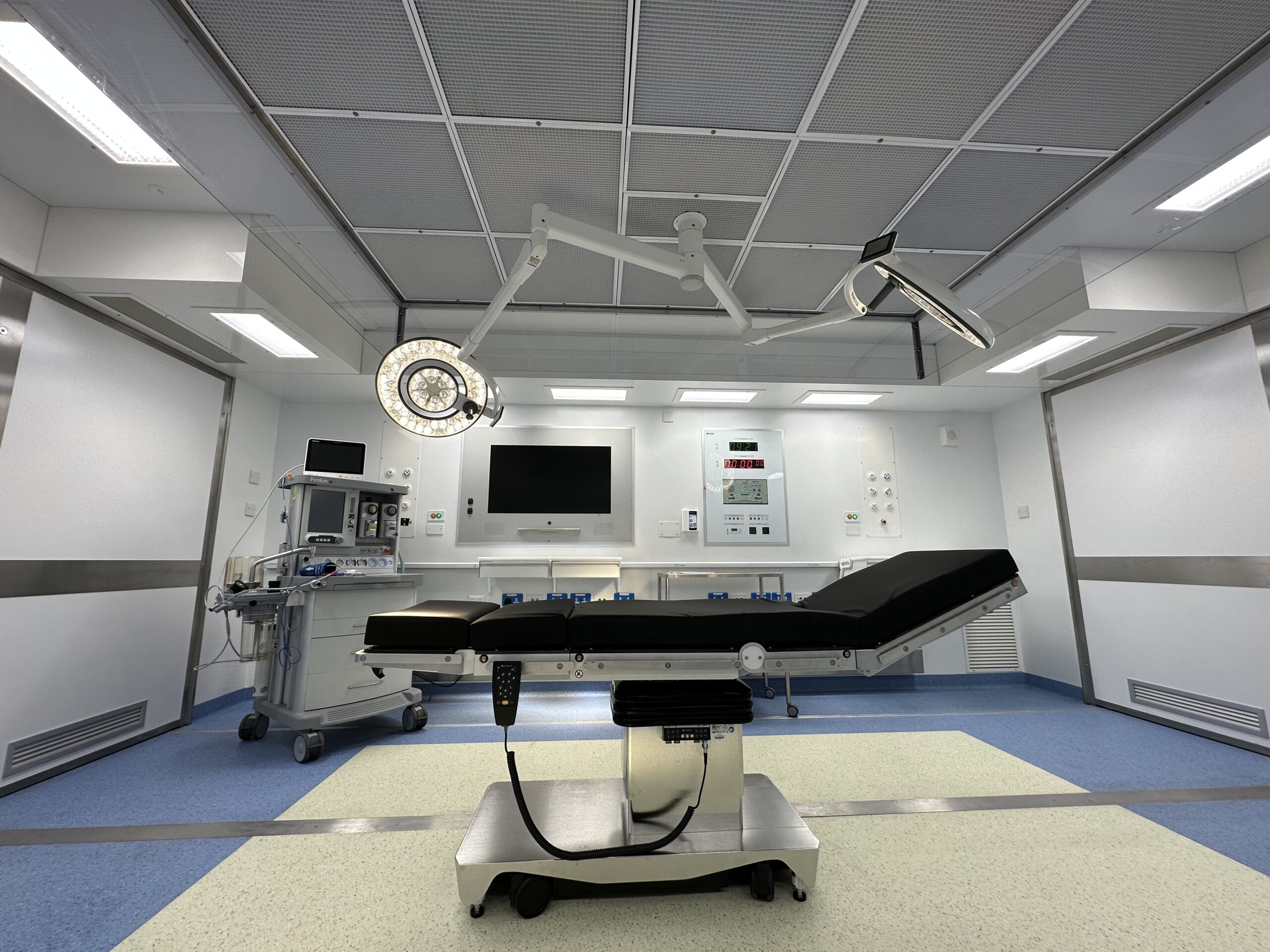
Q-bital Healthcare Solutions
Unit 1144 Regent Court, The Square, Gloucester Business Park, Gloucester, GL3 4AD
